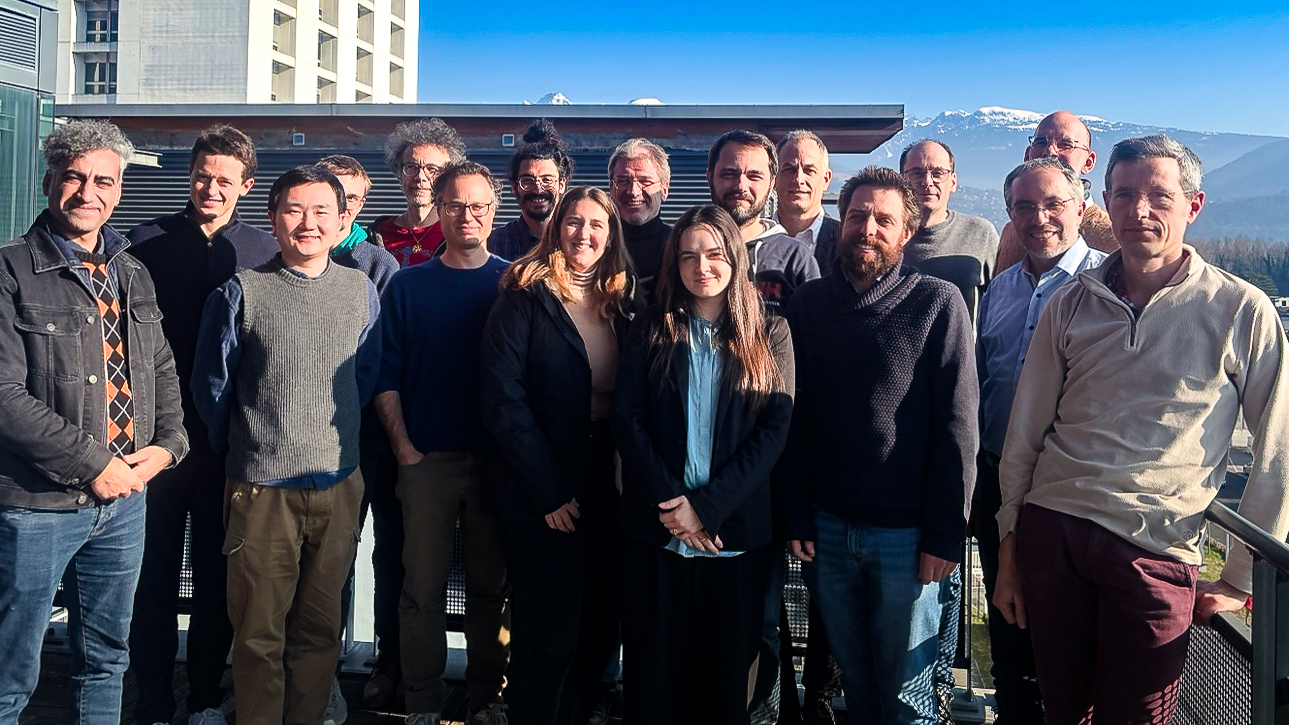Advancing Brain Health Research: Highlights from the PEPR Consortium Meeting in Grenoble

Consortium partners at the Grenoble Institut des Neurosciences (GIN)
On February 4th, the consortium convened in Grenoble for it’s annual in-person meeting, an exceptional occasion as the team typically meets virtually. This physical gathering offered a valuable opportunity for deeper scientific exchange and collaborative planning across work packages.
During this meeting, researchers from the consortium presented key advances across work packages (WP1–WP3), including:
- Machine learning tools for detecting neurodegenerative changes and brain lesions
- Novel approaches to dynamic and directional functional connectivity
- Development of normative models and virtual aging simulations
- Integration of structural and functional brain markers for more precise classification
The team also addressed practical matters such as tool dissemination via EBRAINS and progress on deliverables. Crucial datasets continue to underpin many lines of research, with increasing emphasis on collaborative use and cross-WP data sharing.
This meeting reaffirmed the consortium’s commitment to developing robust, interpretable biomarkers of brain health and to fostering synergies between data-driven, mechanistic, and model-based approaches.